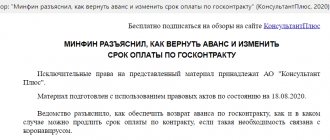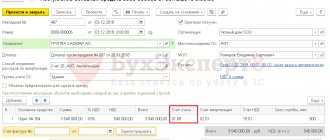What does the concept of “alienation of property” mean?
Note! Alienation of property is the transfer of property or ownership of it from the current owner to another entity.
Important! By default, it is accepted that the alienation of property is a set of actions carried out by its owner of his own free will (for example, on the basis of various transactions).
A systematic analysis of the law allows us to conclude that the alienation of property is not (see paragraph 1 of Article 235 of the Civil Code of the Russian Federation):
- waiver;
- provision of property for temporary use;
- loss or destruction of property or loss of the right to it for objective reasons;
- termination of rights by court decision;
- providing future opportunities for alienation.
Transactions on the alienation of shares: do you need to go to a notary?
When concluding a transaction for the alienation (sale, donation, etc.) of a share in the right of common ownership of a piece of real estate, the question arises: is it necessary to contact a notary or is it enough to draw up an agreement in simple written form. The reason for doubt may be the repeatedly changing legislation in this area. Specialist of the Cadastral Chamber of the Tambov Region Marina Gerasimovich noted the most common situations and told in which cases you will have to contact a notary.
According to current legislation, alienation transactions or mortgage agreements for shares in the right of common ownership of real estate are subject to notarization. However, the law defines exceptions to this rule.
Notarization is not required for the alienation or mortgage of all participants in shared ownership of their shares in one transaction. In this case, a transaction means an agreement. And if, for example, the shares are alienated all at the same time, but under different agreements, then the requirement of “one transaction” is not met. Thus, each agreement will be subject to notarization.
There is no need to contact a notary in the event of alienation of a share from the whole: when the property of the seller or donor is not shared, but individual.
There is also no need to notarize the agreement when alienating an apartment as a whole, if at the same time a share in the right of common shared ownership of a land plot under an apartment building in which such an apartment is located is transferred to the transferee. This is explained by the fact that a share in the right of common shared ownership of a land plot under an apartment building is not an independent subject of the transaction.
There is no need to notarize the transaction for the alienation of land shares. We are talking about a land share in the right of common shared ownership of an agricultural land plot, if the number of participants in shared ownership exceeds five persons. In relation to such land shares, the norms of the Federal Law of July 24, 2002 No. 101-FZ “On the turnover of agricultural land” are applied. If the number of participants in shared ownership of an agricultural land plot is five or less, the general rules of civil law will apply, and then when alienating a share, notarization of the agreement will be required.
Currently, agreements on mortgage of shares in the right of common ownership of real estate concluded with credit institutions, including banks, are not subject to mandatory notarization.
And finally, you definitely need to remember the cases when notarization of the contract cannot be avoided. So, transactions related to the disposal of real estate under guardianship conditions, as well as transactions for the alienation of real estate belonging to a minor citizen or a citizen recognized as having limited legal capacity, are always subject to notarization. There are no exceptions here - the Law protects the rights of persons who are not endowed with the full scope of rights of participants in civil relations.
Forced alienation of property by right of ownership
At the same time, the Civil Code of the Russian Federation contains norms according to which the alienation of property is not always a decision made by the subject of law independently and of his own free will.
Thus, the owner of property that, by virtue of the law, cannot belong to him (for example, if the alienated property is an item related to objects whose circulation is limited, clause 2 of Article 129 of the Civil Code of the Russian Federation), must alienate it within the time limits established by law (Article 238 of the Civil Code of the Russian Federation).
Another situation is when real estate objects located on a land plot seized due to improper use are sold at auction (Article 239 of the Civil Code of the Russian Federation).
Another example is the alienation of property associated with the imposition of a penalty on it. For example, foreclosure on housing that is the subject of a mortgage (Clause 1, Article 50, Articles 51, 55 of the Law “On Mortgage (Pledge of Real Estate)” dated July 16, 1998 No. 102-FZ).
Conclusion! Thus, these actions are performed by the copyright holder himself, albeit in accordance with the mandatory requirements contained in the law.
KAU "MFC of Altai Territory"
03/28/2018 In connection with the repeated requests from applicants - participants in shared ownership, especially buildings and non-residential premises, the Rosreestr Office for the Altai Territory informs about the peculiarities of the alienation of a share in the right of common ownership.
Based on Art. 244 of the Civil Code of the Russian Federation, property owned by two or more persons belongs to them by right of common ownership.
Property may be in common ownership with the determination of the share of each of the participants (common ownership) or without determination of such shares (joint ownership).
Common ownership of property is shared, except in cases where the law provides for the formation of joint ownership of this property.
Participants in common shared ownership (citizens, individual entrepreneurs, legal entities) have the right to dispose of their share at their own discretion - sell, donate, bequeath, pledge, or dispose of it in any other way. Moreover, when alienation of the specified share occurs for compensation, the rules established by Art. 250 Civil Code of the Russian Federation.
The law establishes that when selling a share in the right of common shared ownership to an outsider, the remaining participants in shared ownership have a preemptive right to purchase the sold share at the price for which it is sold and on other equal conditions.
Consequently, the seller is obliged to notify the other participants in shared ownership in writing of his intention to sell his share to an outsider, indicating the price and other conditions. If the remaining participants in shared ownership do not acquire the sold share in the ownership of real estate within a month, the seller has the right to sell his share to any person. In the event of a written refusal by the remaining participants in shared ownership to exercise the pre-emptive right to purchase the share being sold, such share may be sold to an outsider earlier than the specified period.
Federal Law dated July 13, 2015 N 218-FZ “On State Registration of Real Estate” provides for the possibility of notifying participants in shared ownership of a real estate property (except for residential premises) by posting a notice on the Rosreestr website if the number of such participants exceeds 20. Post such a notice the owner can through a “personal account”, which is entered from the main page of the Rosreestr website.
A new function in the department’s “personal account” will allow real estate owners to save time and money if they sell a share in the right of common ownership. The published notice is available for viewing for three months. This service is especially relevant for participants in small and medium-sized businesses, when legal entities or individuals own non-residential buildings, parking lots, etc. on the right of common shared ownership.
The Office of Rosreestr for the Altai Territory reminds that a transaction for the sale of a share in the ownership of a real estate property is subject to notarization.
In addition, we draw attention to the following: if the participants in the common shared ownership of real estate are minors aged 14 to 18 years, then if he refuses the pre-emptive right to purchase a share in the right of ownership, the legal representatives must agree to such refusal. On behalf of minors under 14 years of age, the refusal is given by legal representatives (parents, guardians, trustees). In such cases, prior permission (consent) of the guardianship and trusteeship authority is required for the legal representative of the minor to waive the right of preemption to purchase a share in the right of common ownership of the property or for the legal representatives of the minor to waive this right.
It should be noted that when selling a room in a communal apartment, the remaining owners of rooms in this communal apartment have a pre-emptive right to purchase the alienated room in the manner and under the conditions established by the Civil Code of the Russian Federation.
Source: Press service of the Rosreestr Office for the Altai Territory
Alienation of property of a minor
In this case, the alienation of property is operations also carried out in accordance with the requirements of Art. 26, 28 of the Civil Code of the Russian Federation, which determine the degree of legal capacity of minors depending on their age category.
Note! Transactions with the property of persons under 14 years of age are carried out only by their parents, adoptive parents or guardians (clause 1 of Article 28 of the Civil Code of the Russian Federation), with the exception of small household transactions.
Important! Transactions by minors over 14 years of age are made with the written consent of their legal representatives (Clause 1 of Article 26 of the Civil Code of the Russian Federation), with the exception of cases regulated by law.
Source: RusLawyer
According to paragraph 4 of Article 42 of Federal Law 218-FZ “On State Registration of Real Estate”, when selling a share in the right of common ownership to a person who is not a co-owner, documents confirming that the seller of the share notified in writing the other participants in the share are attached to the application for state registration of rights property about the intention to sell its share, indicating the price and other conditions under which it is sold.
The application for state registration of rights may be accompanied by documents confirming the refusal of the remaining participants in shared ownership to purchase a share and drawn up in accordance with the legislation of the Russian Federation. In this case, state registration of the transfer of the right to a share in common property is carried out regardless of the period that has passed from the date of notification by the seller of the share to the remaining participants in shared ownership.
If the number of participants in shared ownership of real estate exceeds twenty, instead of notifying in writing the remaining participants in shared ownership by the seller of a share in the right of common ownership of the intention to sell his share to an outsider, a notice of this may be posted on the official website. This rule does not apply to notices of the sale of a share in the right of common ownership of residential premises.
In the case stated above, the application for state registration of rights must indicate that notification of participants in common shared ownership was carried out in the manner established by Federal Law. A notice of intention to sell a share in the right of common ownership of real estate must be posted by the seller on the official website without charging a fee. A notice of intention to sell a share in the right of common ownership of real estate must contain the type of property, the cadastral number of the property, the share in the right to which is being sold, the address of the property (if any) or another description of the location of the property (if there is no address), an indication of the price at which the share is sold, the last name, first name, patronymic of the share seller (for an individual) or name (for a legal entity), email address and (or) postal address at which communication with the share seller is carried out. The procedure for posting a notice of intention to sell a share in the right of common ownership of real estate on the official website is established by the regulatory authority.
Transactions on the alienation of shares in the right of common ownership of real estate, including the alienation by all participants in shared ownership of their shares in one transaction, are subject to notarization, with the exception of transactions related to property constituting a mutual investment fund or acquired for inclusion in a mutual fund investment fund, transactions for the alienation of land shares.
Awarding a person the right to a share in an LLC does not give him the rights of a participant
The Judicial Collegium for Economic Disputes of the Supreme Court of the Russian Federation considered a dispute about the rights of a former spouse who received a share in the authorized capital of an LLC on the basis of a court decision on the division of jointly acquired property.
The judges came to the conclusion that awarding a person a share in the authorized capital of a company without obtaining the consent of the remaining participants does not automatically give rise to such person’s corporate rights as a member of the company if the company’s charter contains a ban on the alienation of the share to a third party. Neglect of the rules provided for by the provisions of the charter agreed upon by the participants is unacceptable.
Therefore, acquiring the status of a company participant on the basis of a decision of a court of general jurisdiction that has entered into legal force, in the absence of the will of the company participants to accept a third party into its composition, is erroneous.
Ruling of the Supreme Court of the Russian Federation dated December 15, 2020 No. 308-ES20-11834
Previously, the courts of three instances stated that the presence of a final decision of a court of general jurisdiction recognizing the former spouse’s right to a share in the authorized capital of the company entails her automatic acquisition of the status of a participant. Therefore, the plaintiff’s demands for payment of the actual value of the share are legitimate.
The district court refused to recover the actual value of the share, explaining that in order to receive it, the participant must submit a notarized application for withdrawal from the company (Clause 1, Article 36 of the Federal Law “On Limited Liability Companies” dated 02/08/1998 No. 14-FZ, further “ Law on LLC
»).
Appealing to the Supreme Court of the Russian Federation, the plaintiff explained that her legitimate interests were violated, since, on the one hand, she was not accepted as a member of the company, and on the other, she was refused to recover the actual value of the share. By a decision of a court of general jurisdiction, her property right to the share was recognized, so she had the right to demand payment of the actual value of the share in court.
The Supreme Court of the Russian Federation recognized the conclusions of lower authorities as erroneous
. As follows from the reasoning part of the definition, the acquisition by the former spouse of the status of an LLC participant on the basis of a final decision of a court of general jurisdiction is possible only if the provisions established by the charter of this company are observed.
A contribution made by one of the spouses to the authorized capital of an LLC assumes (within the meaning of Article 35 of the Family Code of the Russian Federation) that the other spouse has agreed to such a disposal of his property, thereby agreeing with the provisions of the organization’s charter. In the case under consideration, the charter provided for the need to obtain the consent of other participants in the company for the alienation by a company participant of its share to third parties, i.e. to include him in “his” circle of society participants (determination of the Constitutional Court of the Russian Federation dated July 3, 2014 No. 1564).
If a spouse (former spouse) is awarded, in the order of dividing jointly acquired property, a share in the authorized capital of a company, the alienation of shares of which to third parties is limited, such spouse (former spouse) receives the right to apply to the company with a request to become a member of the company. The right to receive the actual value of a share from a spouse (former spouse) arises only if other participants refuse to transfer the rights to the share or part thereof to such person
(Clause 1, Article 6 of the Civil Code of the Russian Federation, Clause 5, Article 21 of the LLC Law).
The LLC Law contains dispositive provisions on the possibility of alienating shares to third parties. Indeed, the charter may contain a ban on the alienation of a share in the authorized capital to a third party without the consent of its participants, in order to ensure a balance of their interests and the interests of society as a whole. Since, as explained by the Constitutional Court of the Russian Federation[1], a share in the authorized capital as an object of civil circulation cannot be considered as a simple set of property rights, since the presence of a share binds its owner with certain responsibilities. And a feature of the legal status of limited liability companies is the stable composition of its participants.
As a general rule, a participant who has left the company has the right to receive the actual value of a share in the authorized capital. Also, in paragraph 5 of Art. 23 of the Law on LLC contains a special rule on the obligation of the company to pay the heirs of a deceased member of the company the actual value of the share, if the consent of the participants for the transfer of the share by the heir, as provided for in the charter, was not received.
Thus, in all other cases, if a spouse (former spouse) is awarded a share in the authorized capital of the company in the order of division of jointly acquired property, if the alienation of shares to third parties is limited by the charter, such spouse (former spouse) receives the right to apply to the company with a demand for entry members of the society.
The right to receive the actual value of a share from a spouse (former spouse) arises only if other participants refuse to transfer the rights to the share or part thereof to such a person (Clause 1, Article 6 of the Civil Code of the Russian Federation, Clause 5, Article 21 of the LLC Law) .
The Supreme Court of the Russian Federation canceled all judicial acts adopted in the case and sent the case for a new trial.








